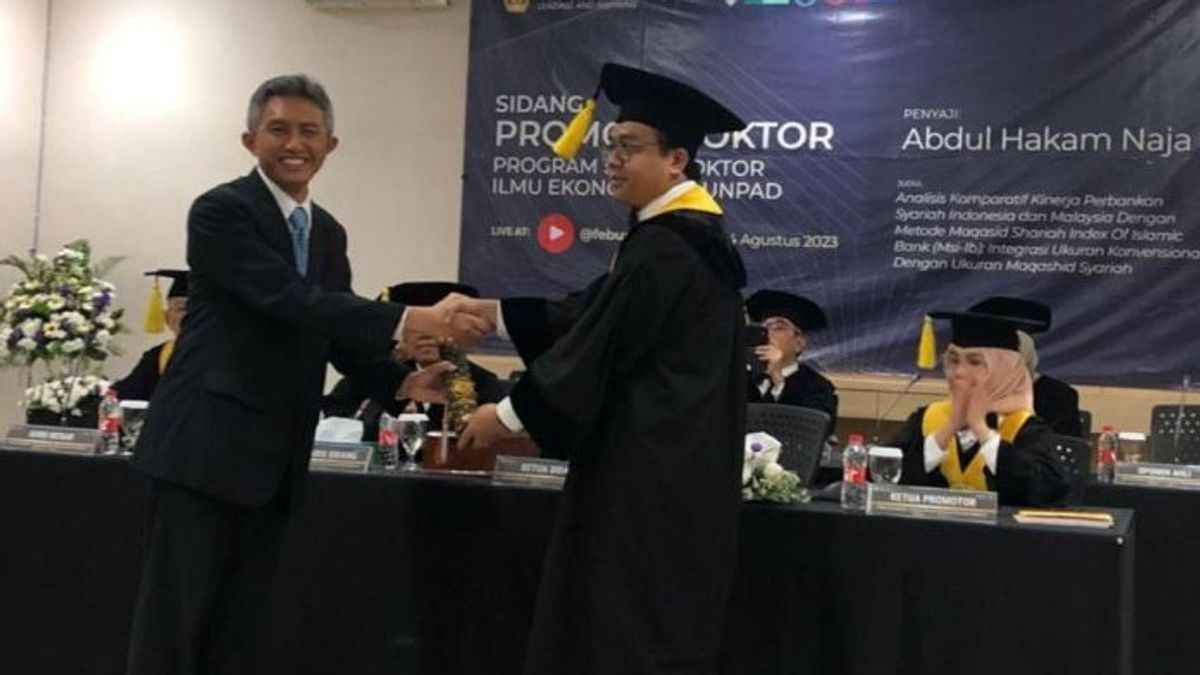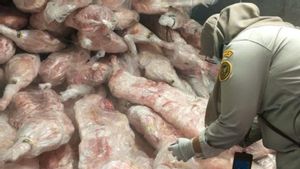Center of Sharia Economic Development (CSED) Institute for Development of Economics and Finance (Indef) Advisor Abdul Hakam Naja said the sharia economy must be built collectively.
"We should build this sharia economy collectively, we cannot do it alone, but we must collect at least 57 OIC countries (Organization of Islamic Cooperation). If we build an ecosystem, we must build a relationship with them," he said in a virtual discussion of the Public Strengthening of the Halal Ecosystem for the Future of Sharia Economics and Finance in Jakarta, quoted from Antara, Saturday, October 5.
Based on data, around 2 billion Muslim population in the world will spend around 3 trillion US dollars (US) or almost three times that of Indonesia's Gross Domestic Product (GDP) which amounted to 1 trillion US dollars.
This potential is considered to have to be taken by Indonesia through synergy with OIC countries such as Malaysia and Brunei Darussalam.
"Indeed, so far we have been a bit negligent, we are not aware, we are not taking that role. The existing data shows that other countries are taking a very important role, which is somewhat important because Indonesia is the largest country in the OIC for consumers of the food and beverage industry (food and beverage industry), while other countries outside the OIC are the largest producers," said Abdul Hakim.
The State of Global Islamic Economy study for 2023-2024 recorded that the halal food and beverage industry is controlled by Brazil, India, the US, Russia and China.
On the other hand, Indonesia is the largest consumer. Therefore, he assessed that synergy is needed with OIC countries to become leaders of the global sharia economic ecosystem.
Various problems that need to be addressed in the country are related to the issue of a middle income trap.
With the standard of medium-income countries of around 4,400-13,800 US dollars, the World Bank reports that Indonesia only reaches 5,200 US dollars per capita per year, while countries such as Malaysia are 13,300 US dollars and Singapore is 35 thousand US dollars.
The achievement of per capita income in the country is said to need to be increased through foreign and domestic investments for technology development in order to generate added value and innovation.
Through the Islamic economic sector, Abdul Hakam considers that there are six sectors that can be synergized to increase Indonesia's per capita income. Starting from the fields of finance, food and beverages, tourism, fashion, media and entertainment, as well as medicine and cosmetics.
"I see that of course we can focus on Indonesia at least four, namely the field of finance, the field of food, the fields of tourism and fashion," he said.
Specifically, he assessed that the domestic fashion industry could be used as a trigger to rise from adversity in the sharia economy through synergies between the textile industry and various designers in order to meet the demand for halal fashion in Indonesia and globally. This effort was also made to get Indonesia out of the de-industrialized state.
VOIR éGALEMENT:
From the existing potential, the population is large, the nature is wide and beautiful, our level of religiosity is also quite good, quite high. The Giving Index (recording) survey of our alms capacity is also great. These are the things that I think in the future we need to encourage, so that innovation is the key, as well as we overcome de-industrialization, we face the future, moreover we don't want to be trapped into an intermediate income country, we want to become a developed country by 2045. he said.
In order for Indonesia to be separated from the middle class revenue trap, economic growth must reach 8 percent with an income per capita of 30 thousand US dollars as targeted in 2045.
If economic growth reaches 8 percent and synergy in the sharia economic ecosystem is formed with OIC countries such as Brunei and Malaysia, he continued, of course, the opportunity to become a leader of the Islamic economy is wide open.
The English, Chinese, Japanese, Arabic, and French versions are automatically generated by the AI. So there may still be inaccuracies in translating, please always see Indonesian as our main language. (system supported by DigitalSiber.id)














